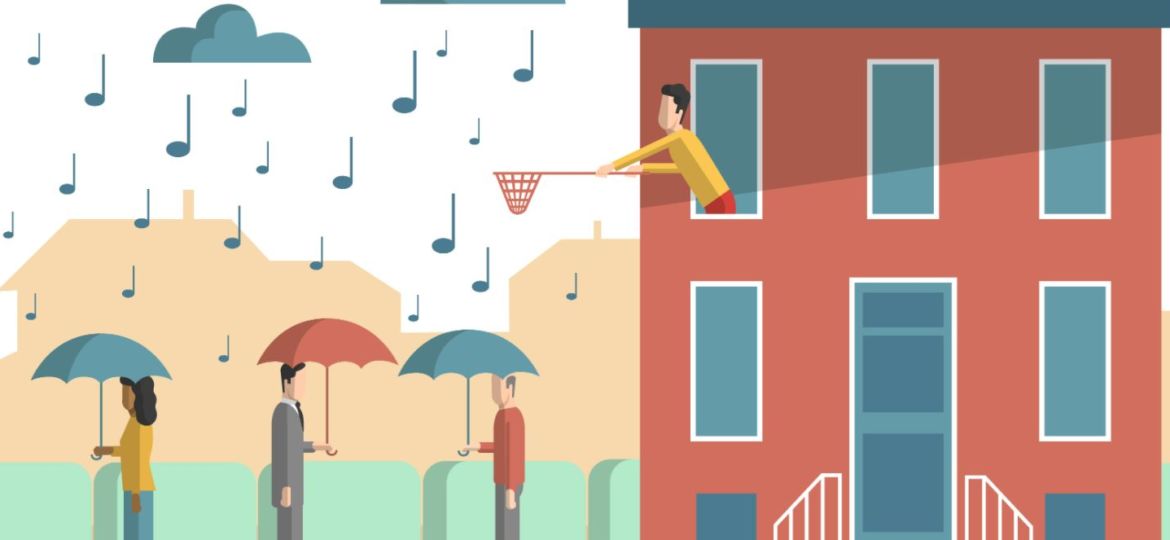
To use content created by others on your website for commercial purposes you need to have permission to do so in a form of a license. This excellent article from Copyrightuser.org explains the different applicable licenses including the creative commons license. It also provides some good links for access to different forms of content.
Copyright: Legal Access
Whether you are building a website, looking for the right photo for your online newspaper or looking for the right sound for your remix, it is important to get permission, and more importantly, the right kind of permission to use media created by others. It does not matter whether you are dealing with a video clip, text, music, photos or computer icons, if you want to make sure your use is lawful, you need to have accessed that material legally.
Legal access needs to be considered when using all types of copyright materials, including those released under Creative Commons licences.
As discussed elsewhere, copyright attracts to a work as soon as that work is put down on paper or ‘fixed’ in a similar manner. Importantly, a work does not need a © symbol in order to benefit from copyright protection. That means no registration is necessary, and no special symbols are required in order for protection to be granted. One should assume that all works, unless very old, are in copyright. If you find a picture using Google image search, but cannot find information about the creator, you are not free to use it. Even if you purchase something legally, such as a song from iTunes, this does not give you permission to use it in your own work. You might have permission to play something for personal use, but not for commercial re-use. Legal access is not just about getting permission, but the right kind of permission for the use you have in mind. For commercial re-use of a copyrighted work, permission will be granted in the form of a licence, and will usually require you to pay a fee for use. Licensing is often performed by bodies called ‘collecting societies’. Collecting societies license copyrighted materials on behalf of rightsholders, and also collect royalties for the use of works. Alternatively, there are intermediary services that have licences that allow for users to re-use works for commercial and non-commercial purposes. However, you should always make sure you read the terms and conditions for these services, so you know exactly what you are and are not allowed to do with the material you want to use.
Legal access can be especially challenging when dealing with Digital Rights Management (DRM) systems. DRM are technical restrictions placed on digital media in order to protect a copyrighted work and to prevent any use of it the rightsholders have not authorised. Examples include the restriction that only allows you to share music you purchased on iTunes on five different devices, the code that prevents you from accessing The Times newspaper online without a subscription, or the code that prevents you from making a copy of a videogame. Although contentious and quite unpopular with general users, DRM continues to be used by many copyright owners. DRM systems are the result of the combination of licensing agreements, which state what you can or cannot do with the work, and Technological Protection Measures (TPMs), which technically prevent you from doing things not allowed by the licence.
The important thing to remember about TPMs is that trying to get around, or ‘circumvent’ them is illegal. It does not matter whether what you are trying to do with DRM protected work is legal (or you think it is legal), the act of circumventing the protection in the first instance is illegal, as DRM technology itself is protected as a form of quasi-copyright. If you need to break DRM in order to use the copyrighted work in the way you want to, it is safe to say you do not have permission for that use. This is especially tricky when you benefit from a copyright exception, such as quotation or news reporting, but you cannot use the work because it is protected by TPMs. For example, you might want to criticise a film or to make a video news report, but the footage you want to use is technologically protected. In these cases, the law provides a procedure which should allow you to use the content, but this is so difficult that so far no one has followed it. Therefore, it is not clear how one should proceed in these circumstances.
Resources
It is important to note that some of the works available at the following links can be used only in certain countries.
Some examples of places to get works offered under copyright licences:
PRS for Music – http://www.prsformusic.com/users/Pages/default.aspx
Shutterstock: database of photographs and images available on different licences for different fees – http://www.shutterstock.com/subscribe.mhtml
Getty Images UK: database of images, video clips and sound tracks available on different licences for different fees – http://www.gettyimages.co.uk/
WordPress: online blogging site that has a range of themes available for both free and for purchase, available on different licence terms – http://www.wordpress.com
Some examples of sites offering works on a Creative Commons basis:
Wikimedia Commons: a database of millions of freely usable media files, like images, sounds and videos – http://commons.wikimedia.org/wiki/Main_Page
Jamendo: music for non-commercial use – http://www.jamendo.com
Jamendo Pro: music usable for commercial purposes – https://pro.jamendo.com/
Flickr: images, available under a range of various CC licences, however it also contains copyrighted images – http://www.flickr.com/
Incompetech: a collection of songs produced by the American artist Kevin MacLeod and distributed under a Creative Commons licence. You can freely use all the songs originally produced by Kevin MacLeod under the only condition of crediting the author – http://incompetech.com/
The Prelinger Archives: a collection of movies that are supposed to be in the public domain in the US – http://archive.org/details/prelinger
The Creative Commons webpage also provides the ability to search for a range of different CC-licensed media: – http://search.creativecommons.org/
Resources available to filmmakers in the UK: http://film.britishcouncil.org/resources/archives/
See also
Contact our expert
Legal Access. Commentary by Benjamin Farrand for CopyrightUser.org. Illustration by Davide Bonazzi for CopyrightUser.org. These works are in copyright and available to use under the CC BY 3.0 licence. Source: https://www.copyrightuser.org/understand/rights-permissions/legal-access/



